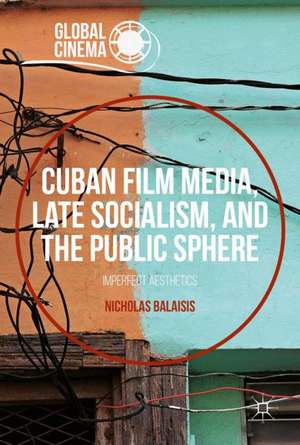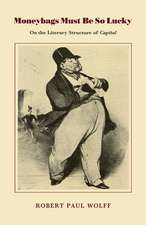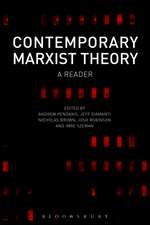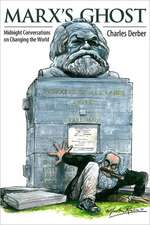Cuban Film Media, Late Socialism, and the Public Sphere: Imperfect Aesthetics: Global Cinema
Autor Nicholas Balaisisen Limba Engleză Hardback – 8 dec 2016
| Toate formatele și edițiile | Preț | Express |
|---|---|---|
| Paperback (1) | 634.82 lei 6-8 săpt. | |
| Palgrave Macmillan US – 30 apr 2018 | 634.82 lei 6-8 săpt. | |
| Hardback (1) | 644.18 lei 6-8 săpt. | |
| Palgrave Macmillan US – 8 dec 2016 | 644.18 lei 6-8 săpt. |
Din seria Global Cinema
- 9%
 Preț: 767.63 lei
Preț: 767.63 lei - 20%
 Preț: 566.90 lei
Preț: 566.90 lei -
 Preț: 386.81 lei
Preț: 386.81 lei - 15%
 Preț: 643.34 lei
Preț: 643.34 lei - 18%
 Preț: 783.68 lei
Preț: 783.68 lei - 15%
 Preț: 580.82 lei
Preț: 580.82 lei - 15%
 Preț: 699.12 lei
Preț: 699.12 lei -
 Preț: 392.37 lei
Preț: 392.37 lei -
 Preț: 385.84 lei
Preț: 385.84 lei - 15%
 Preț: 592.44 lei
Preț: 592.44 lei - 15%
 Preț: 709.77 lei
Preț: 709.77 lei - 15%
 Preț: 706.30 lei
Preț: 706.30 lei - 18%
 Preț: 790.46 lei
Preț: 790.46 lei - 18%
 Preț: 782.72 lei
Preț: 782.72 lei - 18%
 Preț: 732.21 lei
Preț: 732.21 lei -
 Preț: 386.81 lei
Preț: 386.81 lei - 15%
 Preț: 582.80 lei
Preț: 582.80 lei - 18%
 Preț: 781.15 lei
Preț: 781.15 lei - 15%
 Preț: 640.06 lei
Preț: 640.06 lei - 15%
 Preț: 698.15 lei
Preț: 698.15 lei - 18%
 Preț: 735.07 lei
Preț: 735.07 lei
Preț: 644.18 lei
Preț vechi: 757.85 lei
-15% Nou
Puncte Express: 966
Preț estimativ în valută:
123.28€ • 128.23$ • 101.77£
123.28€ • 128.23$ • 101.77£
Carte tipărită la comandă
Livrare economică 15-29 aprilie
Preluare comenzi: 021 569.72.76
Specificații
ISBN-13: 9781137590367
ISBN-10: 113759036X
Pagini: 224
Ilustrații: XII, 201 p. 23 illus., 19 illus. in color.
Dimensiuni: 148 x 210 x 18 mm
Greutate: 0.52 kg
Ediția:1st ed. 2016
Editura: Palgrave Macmillan US
Colecția Palgrave Macmillan
Seria Global Cinema
Locul publicării:New York, United States
ISBN-10: 113759036X
Pagini: 224
Ilustrații: XII, 201 p. 23 illus., 19 illus. in color.
Dimensiuni: 148 x 210 x 18 mm
Greutate: 0.52 kg
Ediția:1st ed. 2016
Editura: Palgrave Macmillan US
Colecția Palgrave Macmillan
Seria Global Cinema
Locul publicării:New York, United States
Cuprins
.Acknowledgments.-.List of Figures.-.Chapter 1. Imperfect Cinema and Making Do.-.Chapter 2. Late Socialism, the Special Period, and Film and Media Practice.-.Chapter 3. Mourning the Revolution: Melodrama and Temporality in Late Socialist Narrative Cinema.-.Chapter 4. Localizing the Global: Transnational Filmmaking at EICTV.-.Chapter 5. Negotiated Endurance: Rural Film Production and Improvised Cinema at Televisión Serrana.-.Chapter 6. One Must Invent: Tactical Aesthetics and Imperfect Design.-.Chapter 7. Afterward.
Notă biografică
Nicholas Balaisis is a postdoctoral fellow at the Critical Media Lab, Department of English Language and Literature at the University of Waterloo, Canada. His work has been published in such journals as Cinema Journal, Transfers: Interdisciplinary Journal of Mobility Studies, Canadian Journal of Film Studies, Cineaction, and Public: Art, Culture, Ideas.
Textul de pe ultima copertă
This book maps the aesthetic experience of late socialism through Cuban film and media practice. It shows how economic and material scarcity as well as political uncertainty is expressed aesthetically in films from the period following the collapse of the Soviet Union, a characteristic described as imperfect aesthetics. The films examined in the book draw attention to the unique temporal experience of late socialism, a period marked both by rapid change and frustrating stasis, nostalgia for Cuba’s past and anxiousness about its future. Aesthetic modes such as melodrama and irony, and stylistic elements such as direct address and the long take, communicate the temporal experience of late socialism in Cuba, where new global traffic and a globalizing economy co-exist with iconic socialist features of the Cuban revolution. Film aesthetics constitute an important public dimension within this context, serving as a site of political and cultural critique amidst political uncertainty. In examining large-scale international co-productions as well as regional film collectives and amateur media making, the book traces the aesthetic continuities between contemporary film practices and those of the immediate post-revolutionary period, showing how the Cuban revolution continues to be an important touchstone for contemporary Cuban filmmakers in the face of new and imminent change.
Caracteristici
Demonstrates how Cuban film and media was influenced by the political and economic difficulties that followed the end of the Soviet Union Analyzes how various stylistic elements and aesthetic modes were used in Cuban films to illustrate the country's experience of late socialism Highlights aesthetic elements within films that have continued from the immediate post-revolutionary period to present day













